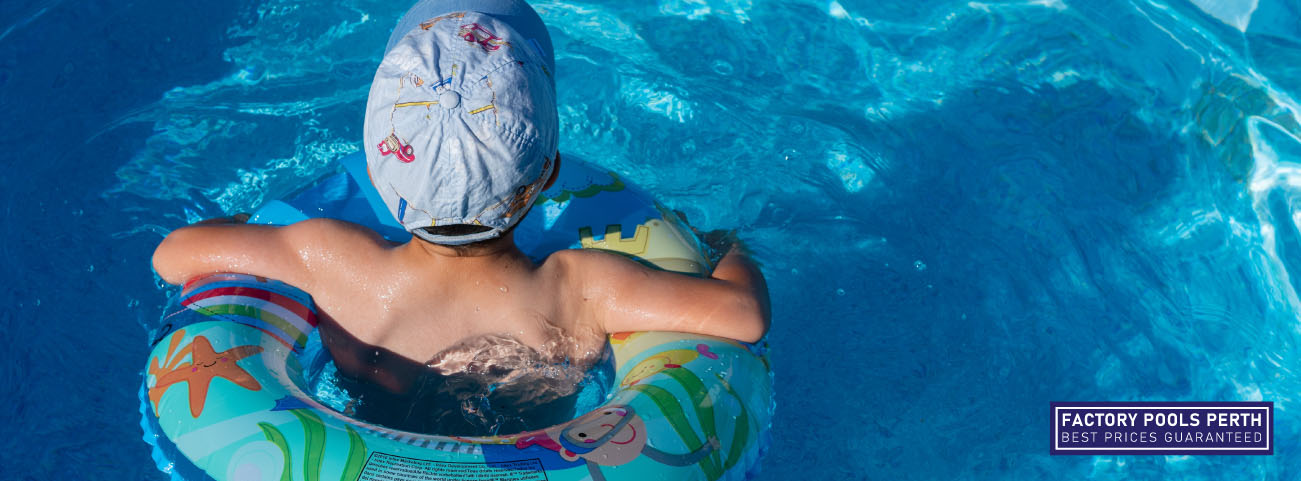Hot Water Vs Cold Water Swimming: Weighing The Pros And Cons Of Each
The temperature of your swimming pool's water can have a telling effect on your overall swimming experience. Most people believe that the best swimming pool experiences are associated with swimming in hot water. However, that isn't necessarily true.

The fact is that both hot and cold water have their respective advantages and disadvantages as far as the swimming pool is concerned. Of course, ultimately, it all boils down to you and your unique tastes and preferences as to how hot or cold you want your swimming pool’s water to be.
In this article, we’ll take a closer look at the pros and cons of swimming in both hot and cold water. By the end of it, we’ll hope to have given you enough information so you can take your pick in an informed manner. So, without any further delay, let’s dive right in and try and uncover what kind of water’s best for you – hot or cold?
Hot water swimming
In general, people tend to consider hot water swimming as the best way to enjoy swimming pools. Of course, it stands true in the winter months when the temperatures dip and you want some heat to do away with the cold. However, you’d be wrong to think that hot water swimming only has benefits to provide – there are certain drawbacks associated with it as well. Let’s take a look at the pros first:
- Hot water can loosen up tensed muscles and relieve muscle fatigue.
- It can clean the oil and dirt that accumulates in the skin’s pores over time by opening them up.
- If you’ve been suffering from conditions affecting your respiratory system, a swim in hot water can be of great help. For instance, if you have a cold and your airways are clogged with mucus, hot water can loosen the mucus, clear the nasal pathways, and also open up the airways.
- Hot water is known to enhance sleep as it activates the parasympathetic nervous system, following which we tend to feel tired.
The disadvantages of swimming in hot water include:
- If you have certain skin conditions, hot water swimming can make them worse. For example, eczema, a condition known to cause rough, itchy, cracked, and inflamed skin, can actually worsen if people suffering from it expose themselves to hot water.
- Even if you don’t have eczema, spending too much time in hot water can make your skin dry and result in irritation. This is due to the fact that hot water damages keratin cells located on the epidermis. Keratin cells play a critical role in trapping moisture and naturally prevent the skin from drying out.
- If you have health risks related to cardiovascular disease and high blood pressure, it’s best to steer clear of swimming and/or showering in hot water. Hot water can increase blood pressure, which can increase the risks of heart attacks and strokes.
- The heat from hot water can trigger the release of histamines from mast cells. Histamines are skin irritants, which can cause itching.

Cold water swimming
Most people wouldn’t even dare to think about swimming in cold water, but there are many benefits to cold water swimming. Of course, there are certain disadvantages as well, but first, let’s look at the positives:
- Swimming in cold water can raise the count of your body’s white blood cells and provide a boost to your immune system. White blood cells are responsible for fighting infection whenever they detect the presence of pathogens. So, spending time in cold water can prevent you from falling prey to bacterial, viral, and fungal infections.
- Cold water swimming results in the flushing of your arteries, capillaries, and veins. This results in blood rushing to the body’s surface and warming its extremities. All in all, swimming in cold water can be amazing for your body’s blood circulation and can actually improve your cardiovascular health.
- When we perform stressful activities, chemicals known as endorphins are activated and released, which have feel-good effects. Swimming in cold water does the exact same thing, which can help us cope with both physical pain and mental health conditions like anxiety and depression.
- During cold water swimming, the heart needs to be at its efficient best and the body has to go through a lot of hard work to stay warm. This results in calorie burning – far more than what happens during swimming in warm/hot water.
- Cold water can also increase your sexual appetite. In women, cold water boosts estrogen production, while in men, it drives the production of testosterone.
The disadvantages of cold water swimming include:
- If your body temperature is on the higher side and you suddenly take a dip in a pool whose water is significantly below your body’s temperature, you may experience what is known as cold water shock. Symptoms include hyperventilation, gasping for air, and high blood pressure.
- Cold water can exacerbate conditions like a common cold, as it can interfere with the immune response and make you feel worse.
Conclusion: Which option should you stick to?
It’s difficult to pick a winner between the two, as both have their respective pros and cons. We recommend assessing your health and figuring out the appropriate pool temperature. For instance, if you’re already suffering from dry skin or any other skin condition, it’s best to swim in cold water. However, if you have a respiratory disorder, hot water would make for the wiser choice.
It’s important to remember that both hot and cold water shouldn’t be drastically above or below your body temperature. A slight difference isn’t a cause for concern, but if the difference makes you feel uncomfortable, you should get out of the pool, adjust the water temperature, and get back in once it feels comfortable.
Experts recommend keeping the water temperature between 25 – 27 degrees Celsius. This temperature range ensures that the water doesn’t feel chilly and also guarantees that the water isn’t warm enough for bacterial growth.
So, that’s about it for this article – we hope this allows you to fine-tune your swimming pool’s water temperature and enjoy your time in the pool.
Hot Water Vs Cold Water Swimming: Weighing The Pros And Cons Of Each
The temperature of your swimming pool's water can have a telling effect on your overall swimming experience. Most people believe that the best swimming pool experiences are associated with swimming in hot water. However, that isn't necessarily true.

The fact is that both hot and cold water have their respective advantages and disadvantages as far as the swimming pool is concerned. Of course, ultimately, it all boils down to you and your unique tastes and preferences as to how hot or cold you want your swimming pool’s water to be.
In this article, we’ll take a closer look at the pros and cons of swimming in both hot and cold water. By the end of it, we’ll hope to have given you enough information so you can take your pick in an informed manner. So, without any further delay, let’s dive right in and try and uncover what kind of water’s best for you – hot or cold?
Hot water swimming
In general, people tend to consider hot water swimming as the best way to enjoy swimming pools. Of course, it stands true in the winter months when the temperatures dip and you want some heat to do away with the cold. However, you’d be wrong to think that hot water swimming only has benefits to provide – there are certain drawbacks associated with it as well. Let’s take a look at the pros first:
- Hot water can loosen up tensed muscles and relieve muscle fatigue.
- It can clean the oil and dirt that accumulates in the skin’s pores over time by opening them up.
- If you’ve been suffering from conditions affecting your respiratory system, a swim in hot water can be of great help. For instance, if you have a cold and your airways are clogged with mucus, hot water can loosen the mucus, clear the nasal pathways, and also open up the airways.
- Hot water is known to enhance sleep as it activates the parasympathetic nervous system, following which we tend to feel tired.
The disadvantages of swimming in hot water include:
- If you have certain skin conditions, hot water swimming can make them worse. For example, eczema, a condition known to cause rough, itchy, cracked, and inflamed skin, can actually worsen if people suffering from it expose themselves to hot water.
- Even if you don’t have eczema, spending too much time in hot water can make your skin dry and result in irritation. This is due to the fact that hot water damages keratin cells located on the epidermis. Keratin cells play a critical role in trapping moisture and naturally prevent the skin from drying out.
- If you have health risks related to cardiovascular disease and high blood pressure, it’s best to steer clear of swimming and/or showering in hot water. Hot water can increase blood pressure, which can increase the risks of heart attacks and strokes.
- The heat from hot water can trigger the release of histamines from mast cells. Histamines are skin irritants, which can cause itching.

Cold water swimming
Most people wouldn’t even dare to think about swimming in cold water, but there are many benefits to cold water swimming. Of course, there are certain disadvantages as well, but first, let’s look at the positives:
- Swimming in cold water can raise the count of your body’s white blood cells and provide a boost to your immune system. White blood cells are responsible for fighting infection whenever they detect the presence of pathogens. So, spending time in cold water can prevent you from falling prey to bacterial, viral, and fungal infections.
- Cold water swimming results in the flushing of your arteries, capillaries, and veins. This results in blood rushing to the body’s surface and warming its extremities. All in all, swimming in cold water can be amazing for your body’s blood circulation and can actually improve your cardiovascular health.
- When we perform stressful activities, chemicals known as endorphins are activated and released, which have feel-good effects. Swimming in cold water does the exact same thing, which can help us cope with both physical pain and mental health conditions like anxiety and depression.
- During cold water swimming, the heart needs to be at its efficient best and the body has to go through a lot of hard work to stay warm. This results in calorie burning – far more than what happens during swimming in warm/hot water.
- Cold water can also increase your sexual appetite. In women, cold water boosts estrogen production, while in men, it drives the production of testosterone.
The disadvantages of cold water swimming include:
- If your body temperature is on the higher side and you suddenly take a dip in a pool whose water is significantly below your body’s temperature, you may experience what is known as cold water shock. Symptoms include hyperventilation, gasping for air, and high blood pressure.
- Cold water can exacerbate conditions like a common cold, as it can interfere with the immune response and make you feel worse.
Conclusion: Which option should you stick to?
It’s difficult to pick a winner between the two, as both have their respective pros and cons. We recommend assessing your health and figuring out the appropriate pool temperature. For instance, if you’re already suffering from dry skin or any other skin condition, it’s best to swim in cold water. However, if you have a respiratory disorder, hot water would make for the wiser choice.
It’s important to remember that both hot and cold water shouldn’t be drastically above or below your body temperature. A slight difference isn’t a cause for concern, but if the difference makes you feel uncomfortable, you should get out of the pool, adjust the water temperature, and get back in once it feels comfortable.
Experts recommend keeping the water temperature between 25 – 27 degrees Celsius. This temperature range ensures that the water doesn’t feel chilly and also guarantees that the water isn’t warm enough for bacterial growth.
So, that’s about it for this article – we hope this allows you to fine-tune your swimming pool’s water temperature and enjoy your time in the pool.



